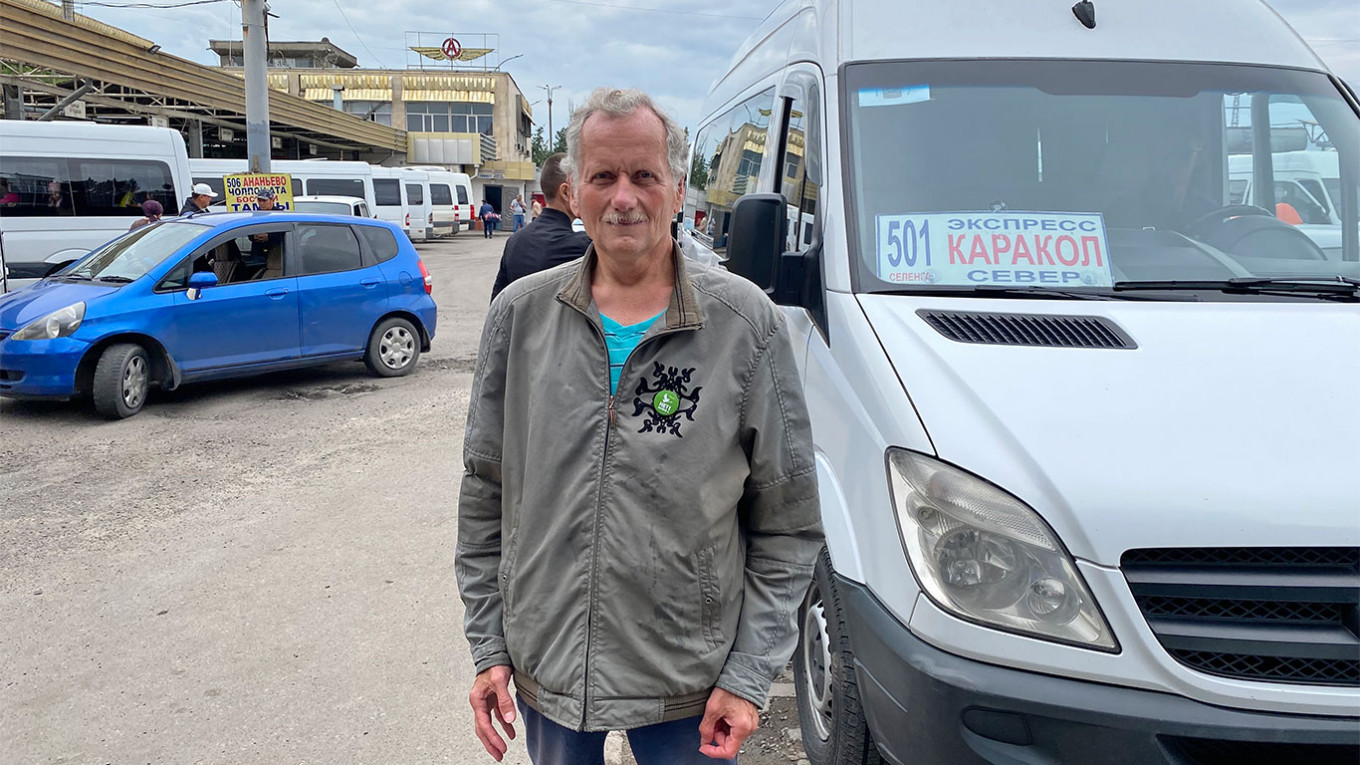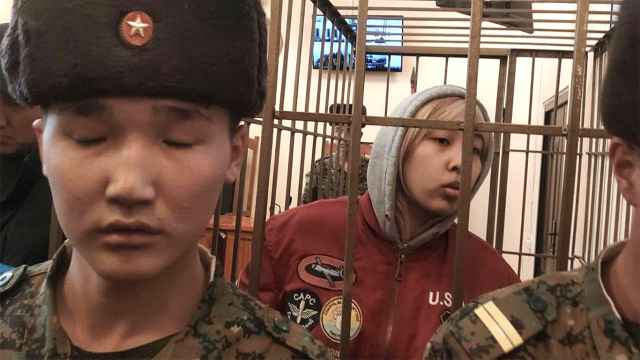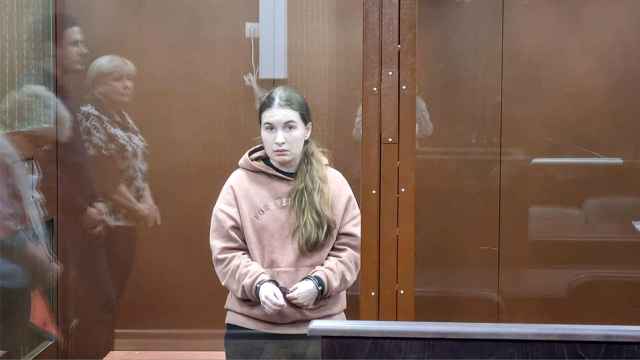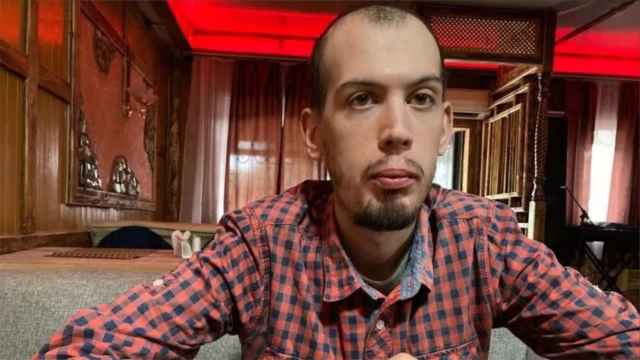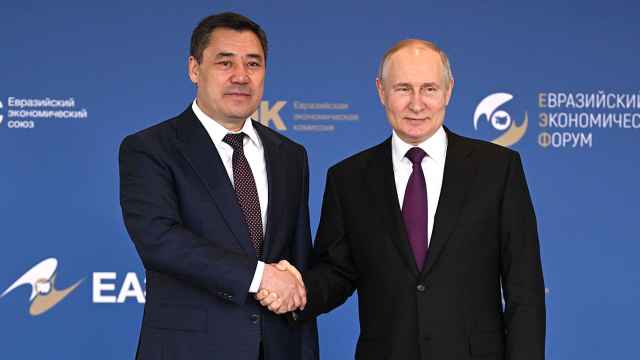KARAKOL, Kyrgyzstan — A sense of deja vu overcame veteran Russian political activist Ilya Shafranov when he was detained at an anti-war protest.
Unlike in the past, he was not being picked up at an opposition demonstration in Moscow — he was being taken into custody by police officers in a remote town in the Central Asian nation of Kyrgyzstan.
“I left Russia for Kyrgyzstan because I’m against war,” read the sign that Shafranov briefly held up earlier this month – to the bemusement of some passersby – in Karakol, which nestles in the foothills of the snow-capped Tien Shan mountains.
One of tens of thousands of Russians who fled abroad in the wake of the invasion of Ukraine, Shafranov chose to settle in a small settlement on the fringes of the former Russian Empire instead of the larger cities like Tbilisi, Riga and Istanbul preferred by most new emigres.
Like many post-Soviet countries, Russian is still widely spoken in Kyrgyzstan.
“The phrase ‘Russian world’ has been smeared by Putinoids’ actions,” Shafranov, 56, told The Moscow Times, using an insulting term for avid supporters of President Vladimir Putin.
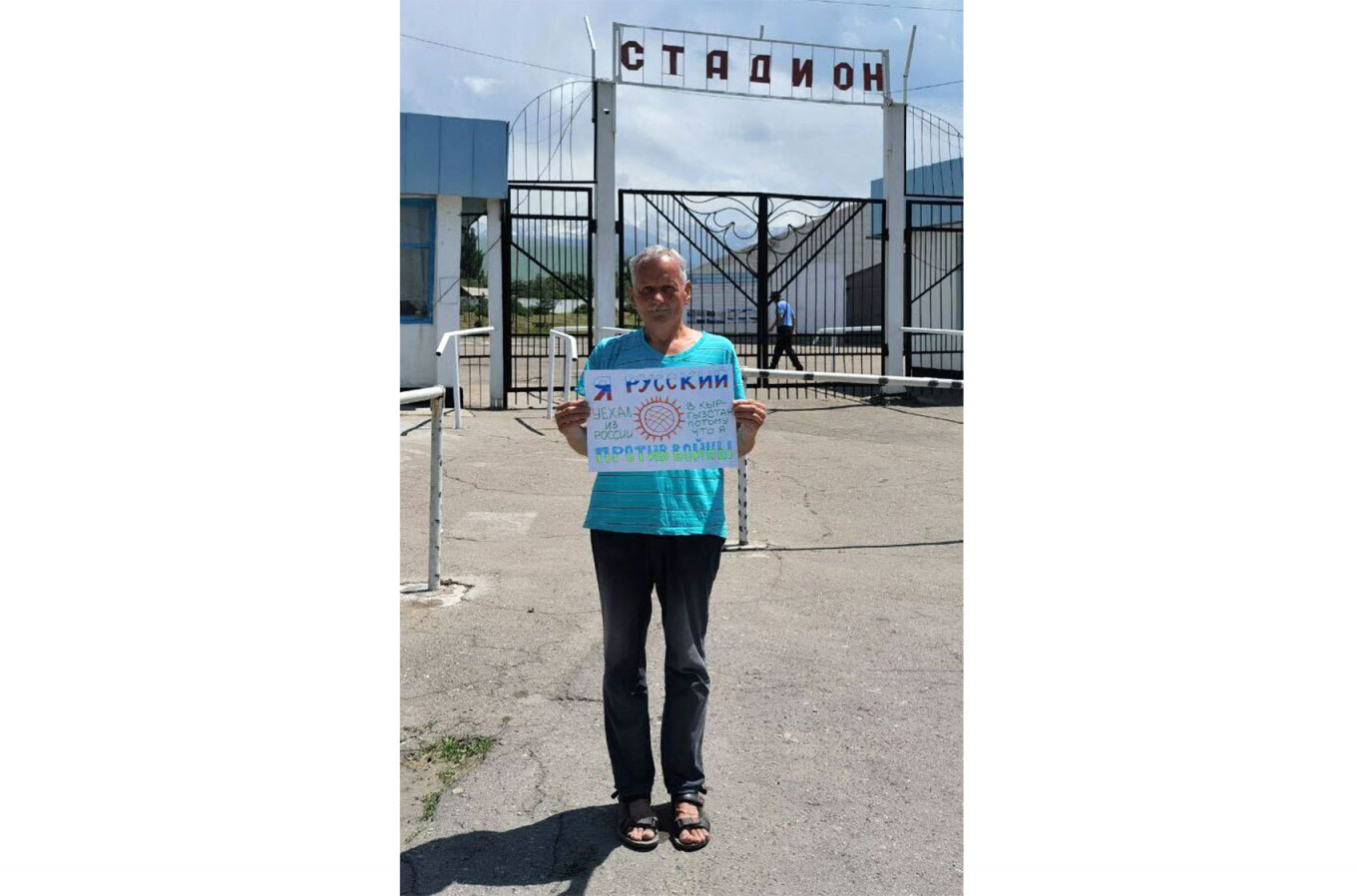
“But it still holds value and reflects reality,” he said. “Karakol remains on the frontier of the Russian world to this day.”
Currently retraining for a career in data science, Shafranov has spent days exploring the nearby mountains and picturesque Issyk-Kul Lake.
For other Russians who have settled in Karakol since the invasion of Ukraine, the beauty of the landscape and its remoteness were the main selling points.
It took travel blogger Alexei Napalkov, 26, almost a week to reach the town by car from his hometown of Orenburg, near the Russian border with Kazakhstan.
“We’re an introverted family, that’s why we didn’t want to live in a big city,” Napalkov said of the decision to relocate to Karakol, whose population is just one-tenth of Orenburg.
“Karakol is a ‘safe haven,’ cozy, albeit not the most modern,” he told The Moscow Times. “It’s also easier to breathe here.”
A holiday destination for climbers, skiers and hikers from around the world, English and French can often be heard on the streets of the sleepy town.
Napalkov joined Shafranov’s protest against the Russian invasion of Ukraine after reading about it earlier that day.
“It's hard to describe my feelings about the feeling of freedom, but after Russia I feel like a freer person here,” he said.
In total, the protest outside a stadium in Karakol attracted just four participants, including Napalkov and Shafranov.
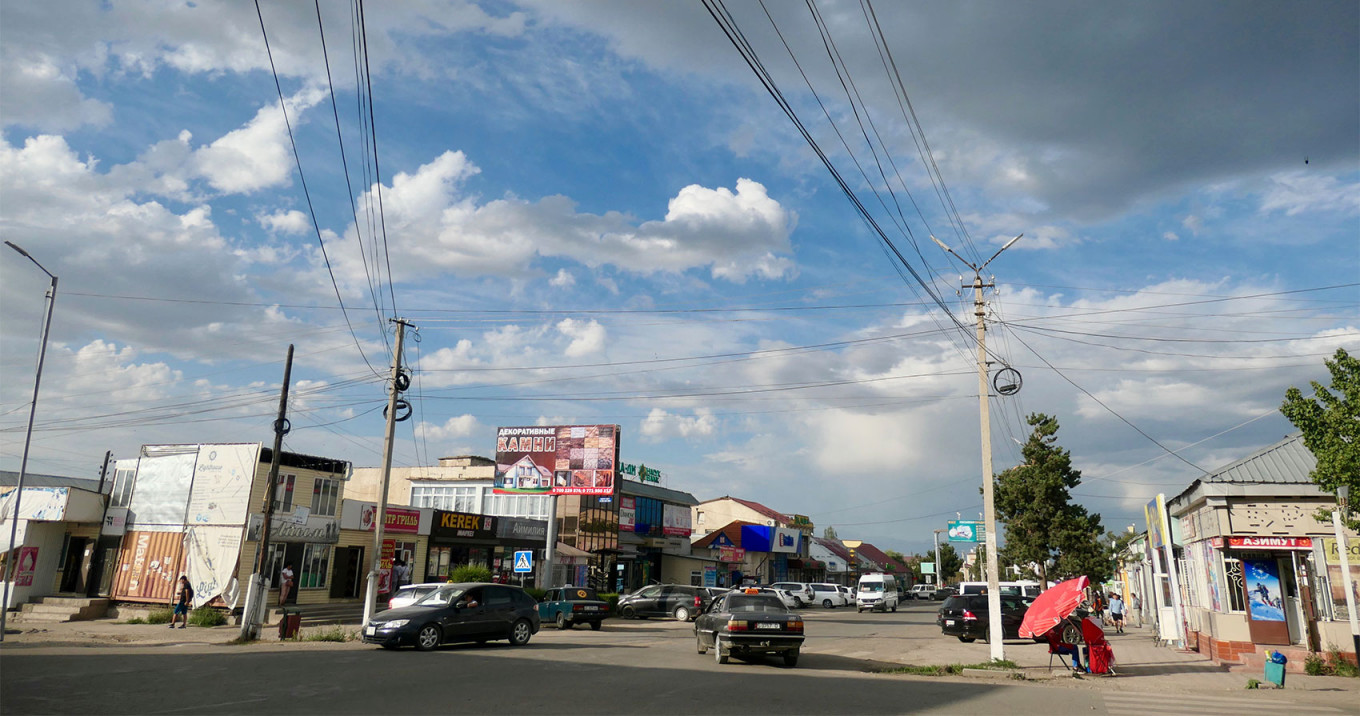
And some locals did not take kindly to their new neighbors’ activism. One passerby suggested the demonstrators “go back to Russia.” A group called Russian Compatriots of Issyk-Kul later filed a complaint accusing Shafranov of “stoking ethnic tensions.”
Despite the mixed reception, Kyrgyzstan has a longstanding reputation as an “island of democracy” surrounded by more authoritarian Central Asian nations.
“Kyrgyzstan was touted as a small democracy with freedom of speech,” said travel blogger Napalkov.
And the freedoms available in Kyrgyzstan appear even more stark when compared with Russia, which has witnessed an unprecedented crackdown on activists and independent journalists since the start of the invasion.
Shafranov was an active member of Moscow’s liberal opposition before fleeing Russia. A supporter of municipal deputy Yulia Galyamina, he was detained several times, including at 2019 opposition protests over Moscow city council elections.
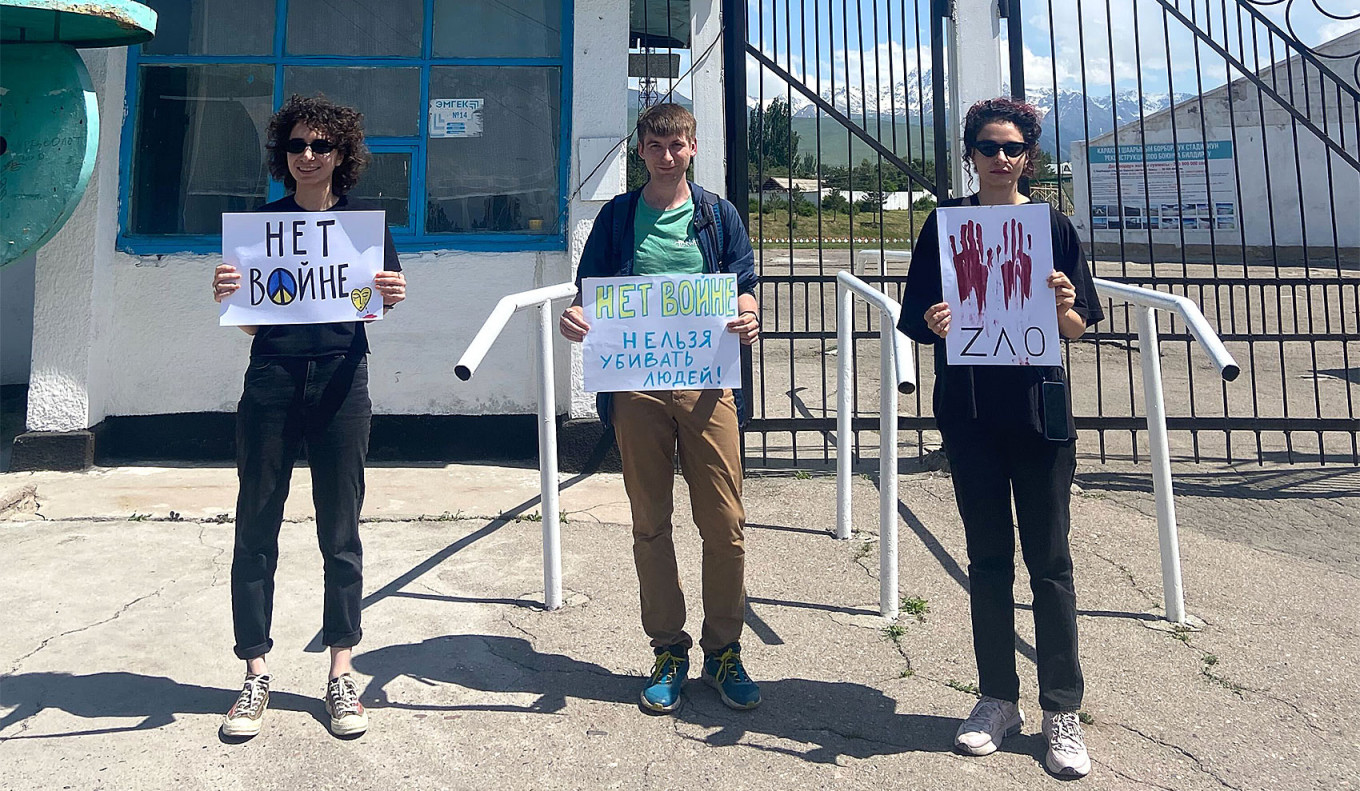
“I’m not going back to Russia until Putin is out of power and democratic reforms are set in motion,” Shafranov told The Moscow Times on a visit to the Kyrgyz capital of Bishkek last month. “I hope it happens while I’m alive.”
Central Asian states have walked a political tightrope since the start of the war, balancing deep economic ties with Russia with an unwillingness to be associated with what appears to many to be Moscow’s imperial revanchism in Ukraine.
Speaking alongside Putin at the St. Petersburg International Economic Forum last week, Kazakh Presiden Kassym-Jomart Tokayev said that his country would not recognize the Russia-backed breakaway republics of eastern Ukraine.
While Shafranov and Napalkov were planning to stay permanently in Karakol, which was established as a Russian military outpost under Tsar Alexander II, other recent Russian arrivals in the area were less committed.
Anna, who asked for her surname to be withheld, said her family originally left Russia because of difficulties with her husband’s job caused by the war. She sought refuge in Cholpon-Ata, a resort town near Karakol of less than 15,000 people.
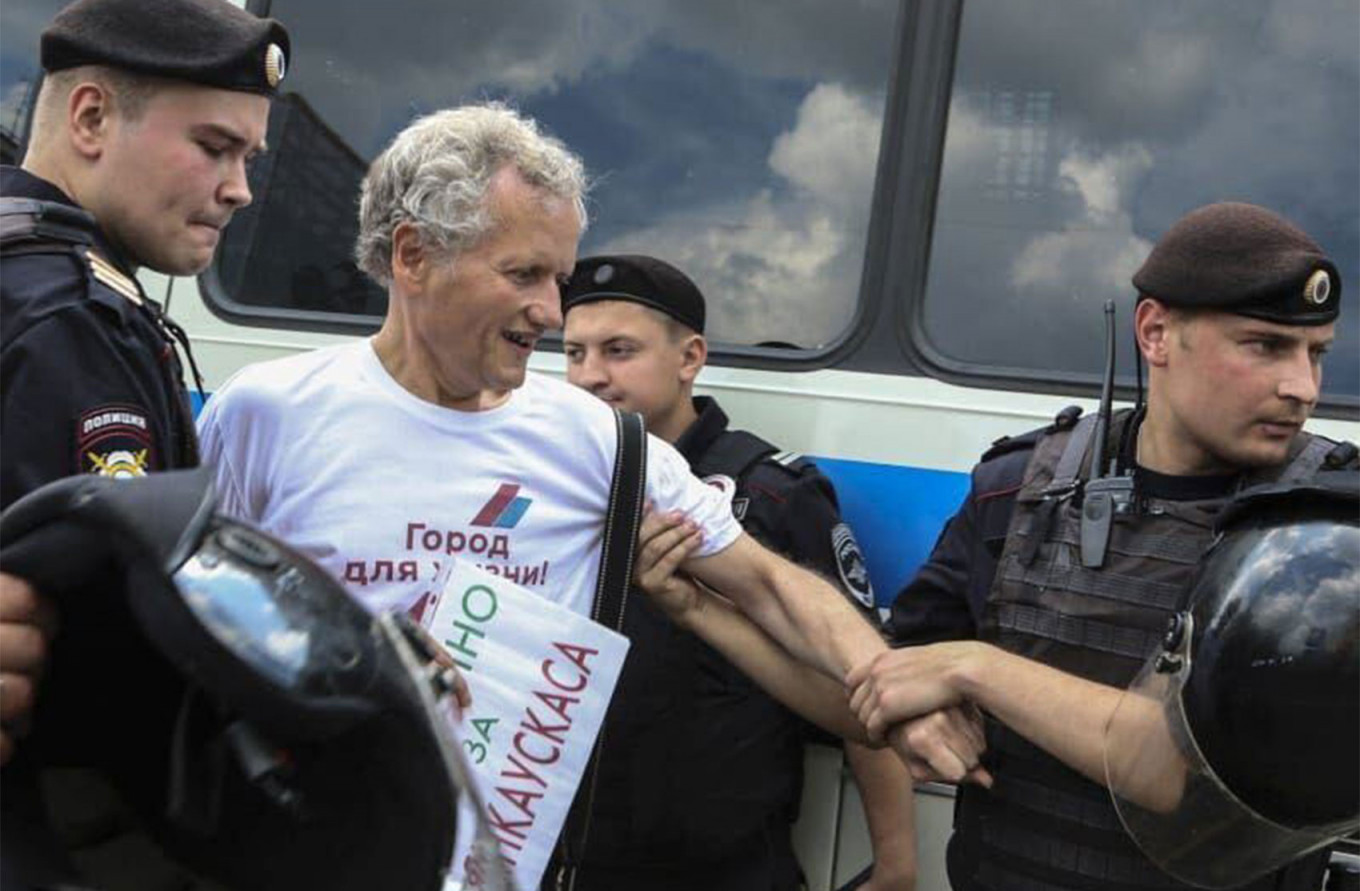
“We fell asleep to the sound of rain, woke up to singing birds and breathed clean air under the cool sun,” she told The Moscow Times. “We all went to an indoor pool at a sanatorium twice a week.”
But when her husband, an IT specialist, resolved the issues with his job, the family decided to return to her hometown near the Siberian city of Novosibirsk.
Back at the anti-war protest in Karakol, Shafranov was whisked away by plainclothes security officers and taken to a local police station.
After three hours of questioning, he was eventually released.
“Having left Russia where freedom of speech has been curtailed, it would be silly not to take advantage of that freedom of speech in a country where it still exists,” he said outside the police station.
“[But] I hope they don’t open a criminal case against me.”
A Message from The Moscow Times:
Dear readers,
We are facing unprecedented challenges. Russia's Prosecutor General's Office has designated The Moscow Times as an "undesirable" organization, criminalizing our work and putting our staff at risk of prosecution. This follows our earlier unjust labeling as a "foreign agent."
These actions are direct attempts to silence independent journalism in Russia. The authorities claim our work "discredits the decisions of the Russian leadership." We see things differently: we strive to provide accurate, unbiased reporting on Russia.
We, the journalists of The Moscow Times, refuse to be silenced. But to continue our work, we need your help.
Your support, no matter how small, makes a world of difference. If you can, please support us monthly starting from just $2. It's quick to set up, and every contribution makes a significant impact.
By supporting The Moscow Times, you're defending open, independent journalism in the face of repression. Thank you for standing with us.
Remind me later.



